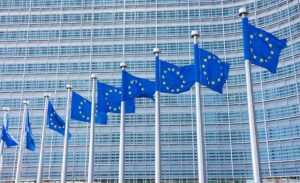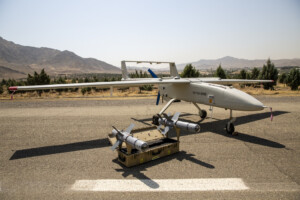Darfur authorities, displaced voice different views on security situation
A farmer was injured and three others were abducted by militiamen in North Darfur on Saturday. The MP for Kutum doubts the possibility of voluntary return in the region because of the continuing insecurity. The government of Central Darfur has started preparations for the return of displaced from the camps after “the successful disarmament campaign” of last year. Displaced in Darfur have expressed their doubts about the voluntary return projects. The participants of a conference on peaceful co-existence in South Darfur on Sunday recommended the strengthening of the native administration in the state.
 The Forika camp for the displaced in Gereida, South Darfur (Albert Gonzalez Farran/Unamid)
The Forika camp for the displaced in Gereida, South Darfur (Albert Gonzalez Farran/Unamid)
A farmer was injured and three others were abducted by militiamen in North Darfur on Saturday. The MP for Kutum doubts the possibility of voluntary return in the region because of the continuing insecurity. The government of Central Darfur has started preparations for the return of displaced from the camps after “the successful disarmament campaign” of last year. Displaced in Darfur have expressed their doubts about the voluntary return projects. The participants of a conference on peaceful co-existence in South Darfur on Sunday recommended the strengthening of the native administration in the state.
“Militiamen under the leadership of Ibrahim Abubaker riding in two vehicles assaulted villagers tending their land in Lamena, in the area of Abu Sakin, on Saturday,” a farmer reported to Radio Dabanga.
“In the ensuing fight, El Fadil Mohamed Ali was injured. They left him and took Abubaker El Doma, his brother Mohamed, and veterinarian Abdelmajid Ahmed to an unknown destination,” he said.
‘Dangerous precedent’
El Tayeb Kafout, member of the federal Parliament for the Kutum-Fata Borno constituency, condemned the attack.
In a parliamentary session on Sunday, Kafout described the incident as “a dangerous precedent” for the near future, and warned that many displaced who will return to their areas of origin “may suffer the same fate”.
According to the MP, the continuing militia attacks on farmers and villagers constitute “a major challenge to the state governor's decision to start the voluntary return programmes”.
He pointed to the comprehensive disarmament campaign in the region last year after the Sudanese president ordered the collection of illegal weapons and a number of emergency measures in the country, to begin with the western region. He called on the Darfur authorities to enhance their efforts to protect the people and continue with the disarmament campaign.
Arms collection, reform of militias
In August last year, the Rapid Support Forces, Sudan’s main government militia, and army troops began collecting illegal arms and unlicensed vehicles in Darfur, as part of a large disarmament campaign in the country.
The campaign is to be followed by a reform of “the supporting forces of the army”, by which the various government militias will be dissolved. The members are to join the RSF.
In end December however, North Darfur Governor Abdelwahid Yousif acknowledged that the arms collection disarmament did not lead to the planned results that far. He pointed to the large spread of arms in North Darfur, and stressed that there was “still a long way to go”.
‘Strategic project’
Jaafar Abdelhakam, Governor of Central Darfur and chairman of the Higher Committee for Voluntary Return in the state considers the resettlement of displaced people and refugees in their areas of origin as “a strategic project adopted by the state’s leadership after the success of the weapons collection campaign”.
In his address to the first session of the Higher Committee in the state capital of Zalingei on Sunday, the governor instructed “the specialised subcommittees to develop visions, programmes, and budgets, and submit them for approval during the next session next Sunday”.
The head of the native administration in Central Darfur, Sese Fadul Sese, called on the Presidency to continue the disarmament campaign “to reassure the displaced so that they will be able to return to their reconstructed villages and enter the production circle.
“This will guarantee the success of the voluntary return project,” he added.
‘Memorial month’
Sheikh Abdelrazig Yousef, spokesman for the Darfur Displaced General Coordination told Radio Dabanga on Sunday that the camp residents insist on justice, and want “Al Bashir and other Sudanese criminals” be arrested and brought to trial at the International Criminal Court.
He further proposed to make March “a special memorial month for the victims of rape and genocide in Darfur”.
The community leader also accused the Sudanese authorities of impeding the provision of humanitarian aid to the displaced in Darfur. “They are confiscating relief goods that are ready to be transported to the people living in the camps,” he said.
He added that the displaced consider the current voluntary return projects initiated by the government as “intimidation.
“They want the people living in the camps to forcibly return to their villages so as to obliterate the marks of displacement,” he said.
Native administration
The conference on peaceful co-existence in Um Dukhun locality in South Darfur concluded on Sunday with recommendations concerning the provision of police and judicial services in the locality, and the enacting of legislation that enable native administration leaders to practise their function as keepers of the social fabric and security situation in the region.
The participants recommended the implementation of the demarcation between the states and localities.
They as well called for the provision of clean drinking water to humans and animals.
They further advised the Ministry of Social Affairs to set up women's development centres, develop opportunities for women to participate in institutions to serve the community and sports programmes for youths, and to open psychiatric centres.
Another important recommendation concerned the support of reconciliation committees and the implementation of the outcomes of the reconciliation conferences between the Taisha and Salamat tribes.









 and then
and then